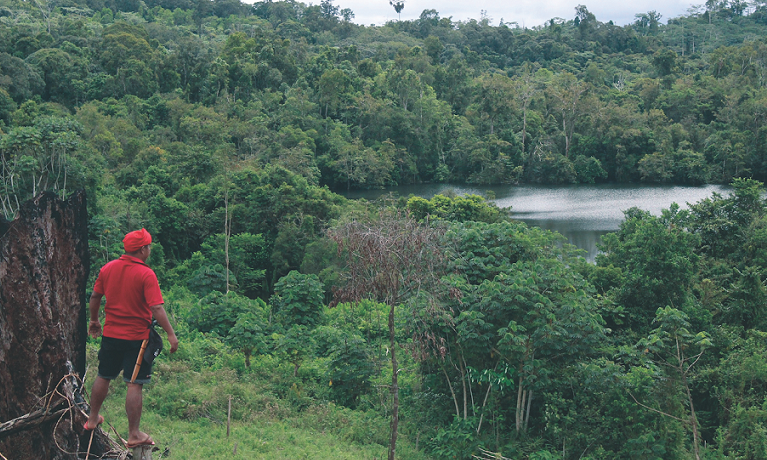Search
Nourishing Life. Territories of Life and Food Sovereignty – a new policy brief

Tuesday 17 December 2019
Press contact
Drawing on practical examples from eight countries in Africa, Asia, Europe, and Latin America, the Policy Brief Nourishing Life. Territories of Life and Food Sovereignty is the outcome of a long term collaboration between the ICCA Consortium, an international association of indigenous peoples and local communities that govern, manage and conserve their territories of life (ICCAs), and the Centre for Agroecology Water and Resilience (CAWR) at Coventry University.
This Policy Brief focuses on the contributions that the territories and areas governed, managed and conserved by custodian indigenous peoples and local communities — ‘ICCAs – territories of life’ — make to food sovereignty and how, in turn, food sovereignty contributes to the conservation of biodiversity and socio-ecological resilience in forests, wetlands, grasslands, and coastal zones. Food sovereignty and the conservation of nature’s diversity are enhanced when self-determining communities affirm the human rights of peasants, fisherfolks, nomads, and indigenous peoples to govern and manage their food systems and the territories they are embedded in. Territories of life and food sovereignty can thus be mutually supportive in virtuous cycles. The authors of this multimedia publication suggest that the movement to add visibility, strength and recognition to ICCAs—territories of life and the movement to foster food sovereignty throughout the world may find it advantageous to engage in knowledge sharing, enhanced mutual support, and joint transformative actions. This Policy Brief lists and discusses specific options to advance that cooperation.
The release of this Policy Brief coincides with the first year anniversary of the adoption of the United Nations Declaration on the Rights of Peasants and Other People Working in Rural Areas (UNDROP - https://digitallibrary.un.org/record/1661560/files/A_RES_73_165-EN.pdf) . Significantly, this UN instrument recognizes peoples’ right to land, seeds, natural resources, and food sovereignty via agroecology, local markets, local seeds, participatory decision-making, gender justice, and the transition to resilient and sustainable food systems.




